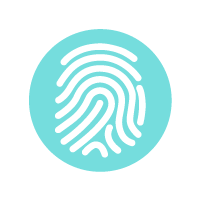Examples of common scenarios where Digital Forensics investigations might be needed include:
Accidental or deliberate company data disclosure
When corporate information is disclosed without permission, either by accident or by design.
Intellectual property theft
When an employee steals intellectual property from an employer and passes it to a competitor or uses it to set up a competing company.
Employee internet abuse or misuse
When an employee violates a computer policy, such as Internet use. If the systems in the office are used for any illegal activity, computer forensics can help determine when and how these illegalities happened.
Incident or breach investigations
When a cyberattack occurs, Digital Forensics can help identify exactly what happened and attempt to identify who or what was responsible, whether that’s for prosecution or just internal knowledge.
White-collar crimes
When insiders or scamsters commit financially motivated crimes, such as identity theft, Ponzi schemes, embezzlement, and other fraud schemes.
Industrial espionage
When a competitor steals trade secrets by recording or copying confidential documents that contain secret formulas, product specifications, or business plans. Industrial espionage is an illegal activity, and computer forensics can help during investigations.
Fraud
When people deliberately provide false or misleading information to gain something unfairly, the Internet or technology is frequently involved.
Online harassment
When people use digital technologies such as social media platforms, email, messaging services, gaming platforms, or cell phone communications to sexually harass or defame people. Digital forensic investigations can help identify the perpetrator and halt these harmful activities.
Human resources investigations
When human resource professionals need to collect data to determine the veracity of allegations or alleged misbehavior.
Criminal and civil cases
When police or lawyers need evidence unearthed by Digital Forensic investigators to serve as the backbone of criminal or civil cases.

